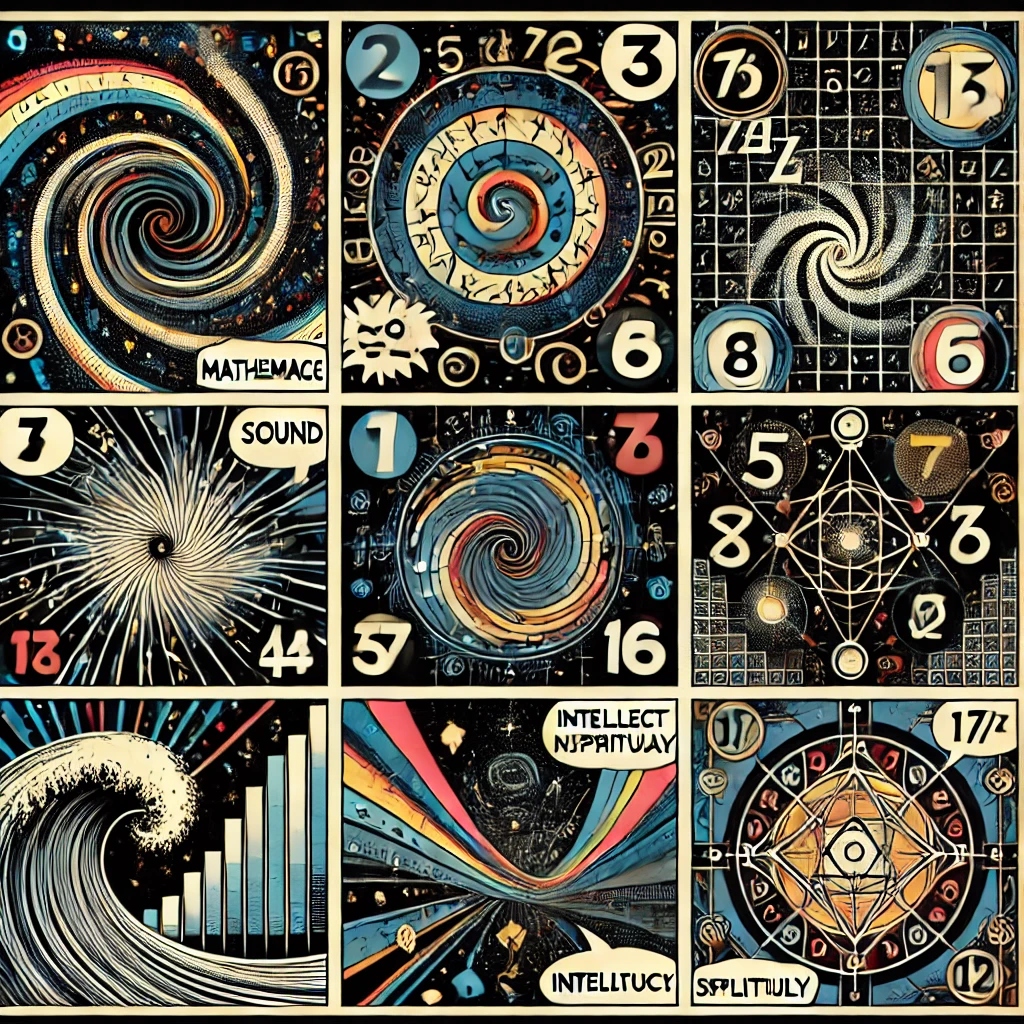Vortex Mathematics Linguistics Sound Numerology Intellect and Spirituality
thoughts become words, but sometimes words become thoughts
https://www.youtube.com/watch?v=Xtni8QF910I
Vortex-Based Mathematics (VBM) is a theoretical framework proposed by Marko Rodin that posits a fundamental role for numbers and mathematical relationships in the structure of the universe. According to Rodin, numbers and their geometric representations hold the key to understanding the underlying patterns and dynamics of reality. Here’s a brief exploration of how Vortex-Based Mathematics intersects with linguistics, sound, numerology, intellect, and spirituality:
1. Linguistics: While VBM primarily focuses on numerical relationships, some proponents suggest parallels between mathematical concepts and linguistic structures. They propose that the vibrational qualities of numbers and their geometric representations may have connections to the vibrational qualities of language and speech. This idea draws on theories of phonosemantics, which explore the relationship between sound and meaning in language.
2. Sound: Sound is a central element in VBM, as it is believed to play a fundamental role in the manifestation of numerical and geometric patterns. Proponents of VBM suggest that sound frequencies and harmonics correspond to specific numerical values and geometric shapes, forming the basis of the mathematical relationships described by Rodin. This idea resonates with concepts from cymatics, the study of sound vibrations and their visual manifestations in physical matter.
3. Numerology: Numerology is the study of the mystical significance of numbers and their influence on human affairs. In VBM, numbers are considered more than mere mathematical quantities; they are seen as energetic forces with spiritual significance. Proponents of VBM often explore the mystical and symbolic meanings associated with specific numbers and numerical patterns, drawing connections to ancient wisdom traditions and esoteric teachings.
4. Intellect: VBM challenges conventional mathematical paradigms by proposing a holistic approach to understanding numbers and their relationships. It encourages intellectual exploration and critical thinking, inviting individuals to question established mathematical frameworks and explore new possibilities for understanding the nature of reality. However, it’s essential to approach VBM with a discerning intellect and a willingness to critically evaluate its claims and implications.
5. Spirituality: VBM has strong spiritual undertones, as it suggests that numbers and mathematical relationships are intrinsic to the fabric of the universe and play a central role in spiritual evolution and enlightenment. Proponents of VBM often emphasize the interconnectedness of all things and the underlying unity of creation, drawing on concepts from various spiritual and philosophical traditions to support their ideas.
In summary, Vortex-Based Mathematics offers a unique perspective on the nature of numbers and their relationship to reality, drawing connections between mathematics, linguistics, sound, numerology, intellect, and spirituality. While it remains a controversial and speculative theory, it has inspired intellectual inquiry and philosophical exploration into the deeper mysteries of existence.
